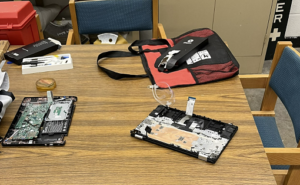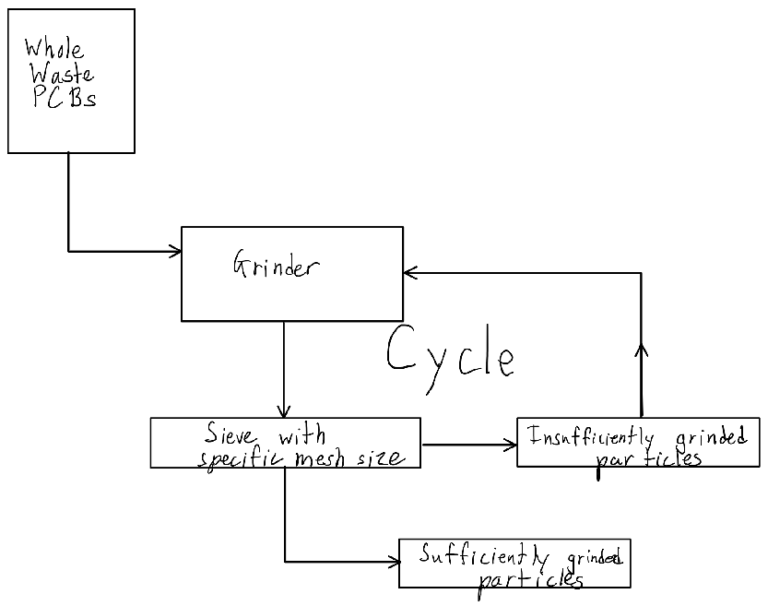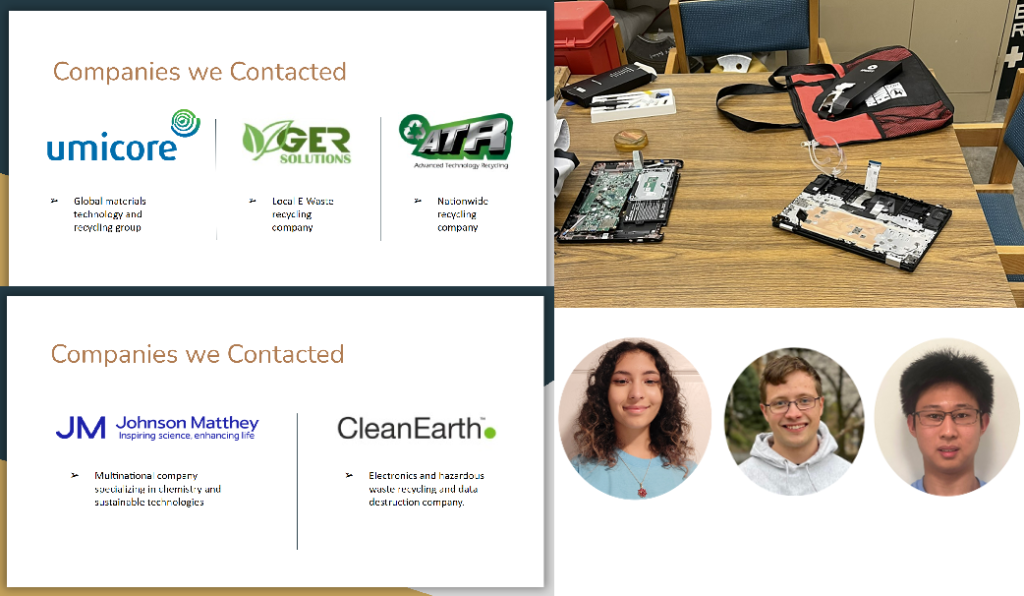This week we examined different practices throughout our research dealing with the disassembly and separation process for PCBs. Together we were able to lay more foundation for the general knowledge of E-waste recycling. From this research, we were able to identify limitations in possible experimental methods in order for easier design of experiments in the future.
While looking into PCB recycling, we noted some difficulties that come with these processes. A major issue that is often seen when recycling these materials includes removing the organic compounds in the plate. These organic compounds are important to keep in mind as they can affect the recycling process. We began researching articles for possible solutions to effectively remove organic materials in a sustainable manner. For example, we looked into the supercritical fluid dissolutions of organic compounds in PCBs. This is one of many methods that are available for the removal of organic materials.
We continued to contact local E-Waste companies to establish visit times. A couple of companies we contacted include; Johnson Matthey, Clean Earth, GER Solutions, Advanced technology recycling, and Umicore. We have also contacted individuals who worked on recovering metals from E-Waste in a past project. We hope to gain more information about E-waste recycling and specifically learn more about the processes that come with recycling PCBs.

Lastly, we were able to obtain a working space in Whitaker Labs. This space allows for easier communication with our research group and our professor.


